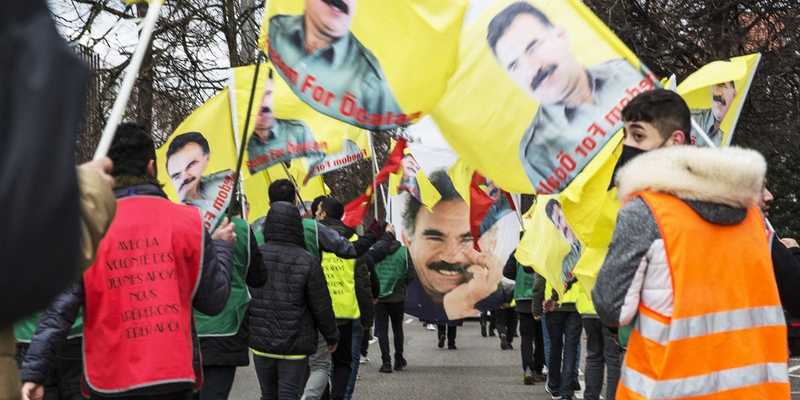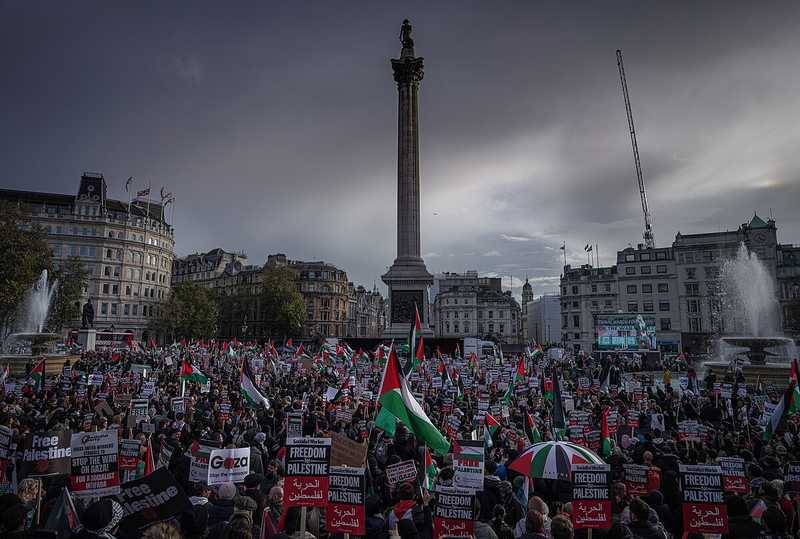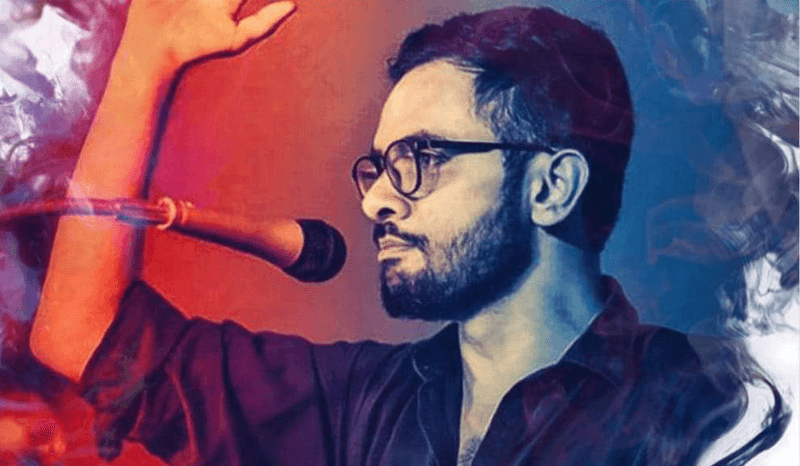
On 15 February, “Öcalan’s freedom” was trending at the top of the local and international agenda across the four-parts-Kurdistan and all continents, wherever Kurds and their friends exist.
The democratic and liberation forces of Kurdistan, on the 23rd year of Öcalan’s incarceration in the Imrali prison-island, are determined to open a passage through the wall of “absolute isolation” erected in 2015 between Abdullah Öcalan, the imprisoned leader of the PKK and the Kurdish people.
The “Imrali regime” – meaning the set of rules and practices employed for containing Öcalan- is not only an extraordinary way of incarceration in order to “punish” an individual insurgent. Indeed, in its peculiar modus operandi, characterised essentially by the permanent suspension of the system of rights borne out of the international and domestic law, the “Imrali regime” comprises the crystallized embodiment of Ankara’s perspective of handling the Kurdish issue: Erecting an eternal wall in order to separate the popular movement and its leadership; excluding the Kurds from the political and legal rights framework granted for all other “citizens” in general in Turkey; establishing a permanent “master and slave” status for Turkey and the Kurds; and consequently, reshaping colonialism and fascism as much as it may fit into Ankara’s obscure international system of alliances.
Thus, the present mobilization set forth by the Kurds around the “İmrali regime” is not simply a struggle confined to stop Imrali Island serving as a “penal colony” for Öcalan. The “Imrali regime have, since 2015, gained a particular import what exceeds its own boundaries and assumed the part of the new “Kurdish status quo” imposed by the Erdoğan dictatorship on Turkey and Kurdistan.
That is why it would be totally erroneous to relate the rising reaction against the “İmralı regime” to an expression of loyalty by a narrow circle of “PKK sympathizers” than to a widespread discontent prevailing among Turkey’s Kurds. This error would amount to a crude disregard of the Kurdish people’s political build-up and experiences and the collective political wisdom that has grown out of this background.
Indeed, Kurds don’t need to resort to “profound” anthropological analysis like Turkey’s political elites to comprehend that the degree of respect paid for their lives and freedoms under the Turkish rule is directly proportionate to the degree of the increase or decrease in the capacities of their political leadership.
Kurds are well aware of the parallels between their own lives and that of the “İmrali regime” out of their own experiences: The state’s failings in imposing the “Imrali regime” with full domination always signifies a relative growth in the Kurds’ capacity in counterbalancing the power of tyranny and the course of the ups and downs in the history of the “Imrali regime” comprises a graphical record of the evolution of the Kurds’ political determination.
Whenever a window opens out in Imrali, Kurds enjoy a momentary relief, and when it is blanketed by darkness, Kurdistan has never been brighter. When Öcalan’s direct contact and communication with the representatives of the Kurdish people is suspended and they are replaced with self-appointed “messengers”, “couriers”, “academicians”, “presidents” and “prime ministers”, then truth, reason and morals evade and the era of lies, dirty games and intrigues is full open as it happens…
That is why the “Imrali regime” is reacted to by the Kurds in general and this reaction is not necessarily confined to one’s proximity to the particular political line pursued by the movement at that moment. It is rather a function of general resentment from fascism and dictatorship in general and from the tyranny’s vile methods of treating Kurdish prisoners in general and Öcalan in particular. This resentment obviously reflects the moral high grounds gained by the Kurds throughout the decades of fighting for dignity which they may not ever allow to end with defeat.
Öcalan, thus preserves his unique position, even after 23 years in prison -mostly under solitary confinement, with little access to information and communication, always under the strictest control ever imposed on any other political prisoner of his kind elsewhere. During those 23 years, many politicians of the establishment or of the dissent, many leaders from the left or out of the Kurdish movement in four-parts have come and gone, mostly without a trace. However Öcalan keeps his posture as a unique figure whose intervention might immediately affect the political course of things.
The key to Öcalan’s political success under these conditions lies in his awareness of the uniqueness of the Kurdish struggle for self-rule over a divided land and nation among four states of the region, Turkey being the only one with the most developed political, historical, cultural and military ties with the capitalist centre.
On the military front he had based his rear bases along the fault lines of the East and West, in the Bekaa valley, over the Sinjar and Qandil mountains what provided him an immense geographic advantage for the continuation of the insurgency over his own territory; but on the political front he ascertained that the victory lied not in chopping a parcel of Kurdistan on factional lines but securing a prosperous and peaceful existence for the Kurds over multi-ethnic, multi-lingual lands where only polices of co-existence would guarantee peace and prosperity.
This is the historical and logical source where Öcalan’s multi-faceted and multilateral policies stem from. And from this point of departure evolves the strategies and tactics of Öcalan to maintain a civilian and popular posture for the movement in Kurdistan, in Turkey, in the region and overseas.
Hence, not only a destructive but also a constructive mission; not only an organization for war, but also for peace; relying not only on subversive methods but on open politics on every level from grassroots to diplomatic heights; a movement not only relying on the capacities of the trained cadres but also on the local lore and traditions, not only on modern teachings of socialism but also on the living practices of the tribal commune so on…
The shift of tactics and the political approaches he has been able to maintain have provided Öcalan a major reserve to build his policies throughout the decades he has spent in the ‘İmralı regime’, and has secured him the position of a political playmaker from outside of the establishment in Turkish and regional politics.
Through limited access to the public, Öcalan has sought to utilize every opportunity for educating and leading his cadres to adapt themselves to the ever-changing political climate in the post-Soviet era; and to limit the armed struggle with defensive purposes in Northern Kurdistan while gaining a deeper influence in the sphere of open, democratic politics; developing unique, concrete functional policies for each and every four-parts of Kurdistan instead of running after immediate success for “Kurdistan as a whole” and thus infusing democratic synergy in the political complexion of all states who govern the Kurds as their subjects.
Without Öcalan, the Peoples’ Democratic Party [HDP] in Turkey, who controls almost 15 percent of the popular vote and retains the unique position of king-maker would not have been fancied by the former cadres of the Kurdish political establishment as well as by majority Turkish left leaders. Yet thanks to Öcalan’s determination and only his determination in pushing the new generation Kurdish politicians for founding a new type of pluralist political party -pluralist not only in the sense of political tendencies but pluralist also in the sense of bringing together all sectors of the oppressed, that is, languages, cultures, genders and sexes, classes, beliefs, with Kurds, has given way to an unprecedented “chemical” reaction what has brought about the major “soft power” against fascism and tyranny and the hot bed of radical democracy.
Hence, opening a channel through the “İmralı regime”, tearing down the walls of isolation and bringing Öcalan into contact with the masses is a “democratic necessity” for all who follow an agenda for rights and freedoms in Kurdistan, Turkey and across the globe in anticipation of the major changes to come in a few years.
Ertuğrul Kürkçü is the current Honorary President of the Peoples' Democratic Party (HDP) and Honorary Associate of the Parliamentary Assembly of the Council of Europe (PACE). He was the co-chair of the HDP in 2013-14 and the member of parliament for three successive terms between 2011-2018. He spent 14 years as a prisoner between 1972-1986 for his political activism in Turkey, after which he helped found the Freedom and Solidarity Party (ÖDP). After its disintegration, he joined the united block of ‘Labor, Democracy and Freedom’ in 2011 what successfully transformed into the HDP.



